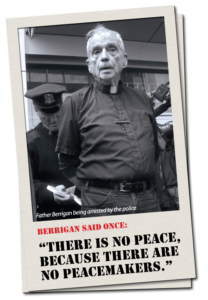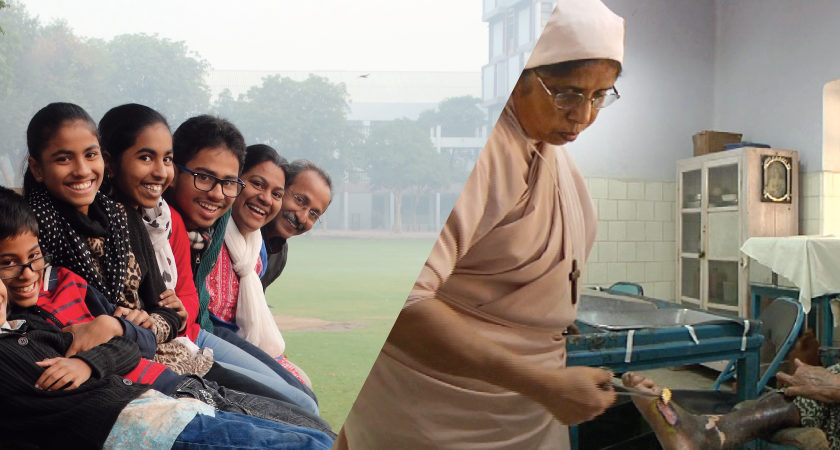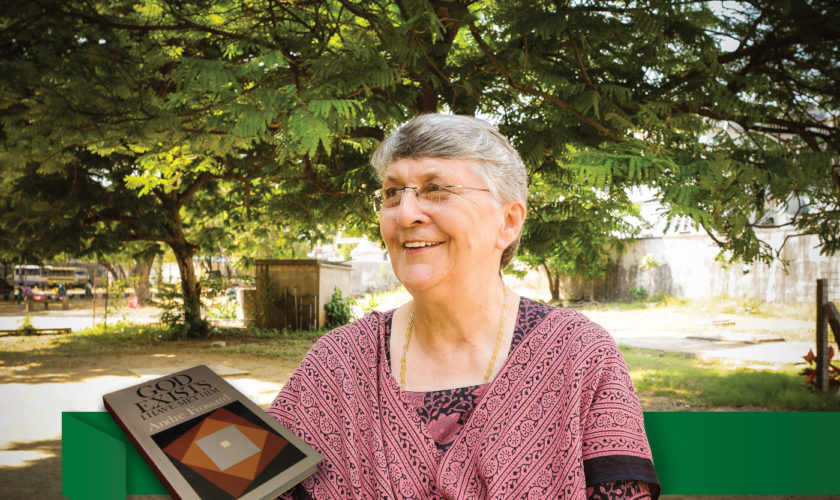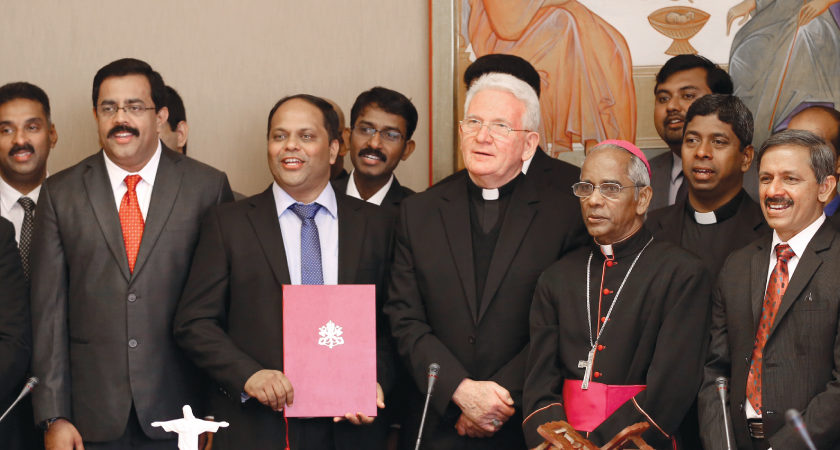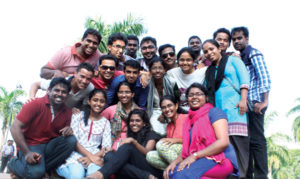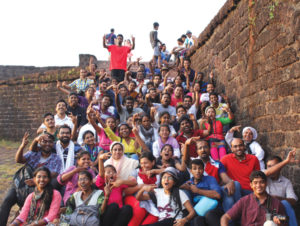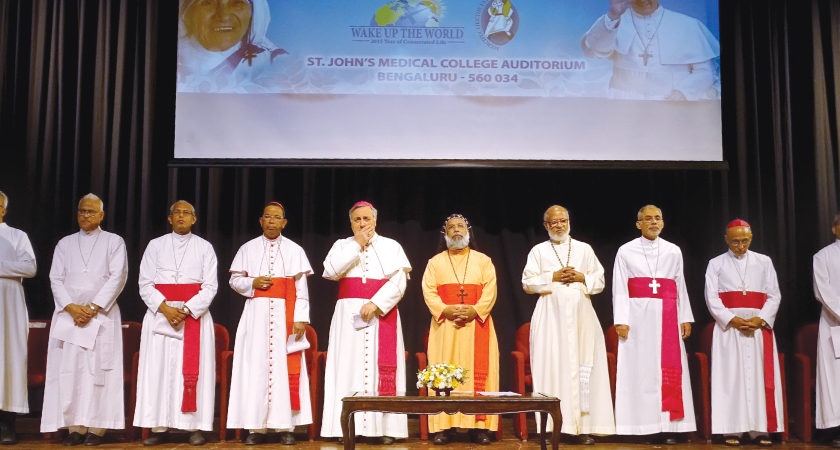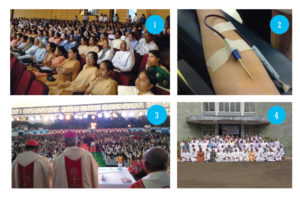![]() WHO I BECOME:
WHO I BECOME:
The main decision in life is not about which group to join (priesthood, religious life, marriage, etc.), or which profession to enter, but about the kind of person I want to become:
A friend once told me: “You are busy with many things. Is that what is most important for you? Do you think of the kind of person you want to become by the time you die? Isn’t that the most important thing in life?”
It certainly is.
I can be a saint or a crook in any setting. There is nothing great or wonderful about just being a priest or religious or lay professional. What really matters is: What kind of a person do I want to be? Do I give this all-important central question due time and attention?
Who I become matters much more than what I do, which group I belong to, or what titles I accumulate.
A layman I admire greatly was told by a friend of many years: “I have been observing you for years. Whenever I praised you for something, you always gave the credit to someone else. What if I tell you: You are the finest human being I have ever come across?”
Wouldn’t it be great if such a compliment could be sincerely given to us?
![]() MOST BASIC CHOICE:
MOST BASIC CHOICE:
This central decision involves a basic choice: to love or not to love.
The kind of person I want to become depends mostly on cultivating a basic attitude: to be loving and to be selfish—to truly care for others, or to make use of people for my selfish ends.
As a friend once told me when I was busy writing: “At the end of your life God will not ask you how many books you wrote, but how much you loved!”
In fact, what makes a vocational choice—e.g., to become a religious or a priest or doctor or teacher—good is whether it is taken out of love. Am I here to love and serve people, to respond to God’s love, or to have a self-centred or fear-centred life?
Those who choose celibacy need to remember: Love is a must; celibacy is not. Being loving is more important than holding special titles (Bishop, Father, Sister, etc.).
Fr Pascual Chavez SDB, former superior general of the Salesians, used to remind his communities, “Perseverance is not the same as fidelity.” That is: Just staying in is not an achievement. If all I do is to stay in a marriage or a religious order or priesthood, that is nothing meaningful. If I am becoming a more loving person in this setting, great!
![]() RESPONSIBILITY FOR HAPPINESS:
RESPONSIBILITY FOR HAPPINESS:
Becoming a happy person is my personal responsibility.
No setting can make me happy. I can be happy or unhappy in any place or profession.
Neither marriage, nor celibacy, nor the priesthood, nor belonging to any particular group will make a person happy. Others can do things for me, can make my life easier or harder, but they cannot give me something called happiness.
Sheila, a young working woman, suffers from painful health problems, financial constraints and unloving treatment in her marriage. Yet she says: “I have decided to be happy.” She realizes that it is not in her power to change her husband’s character or several other conditions in her work and family. But it is in her control to decide whether to let external circumstances make her unhappy or not.
Do I take responsibility for my happiness? Or, am I waiting for others to make me happy?
Am I generally a happy person—or am I waiting for some special occasion to be happy?
When I find I am not happy, do I take steps to come out of it and find my path to happiness?
![]() FORMING MYSELF:
FORMING MYSELF:
I form myself. Others can help me, but they cannot form me. They can influence me; they cannot make me a good or bad person
A priest I had taught in the seminary said this about formation: “Father, already when I was in the seminary, I was convinced that you superiors cannot form us; we form ourselves.”
So true. The main agent of formation is the person in formation. This is true in a family or seminary or convent. Others can tell us good things, correct us, guide us; but no one can make me good.
I form myself into the kind of person I want to become through the choices I make.
Just because my parents are good, does not mean that I will be good. Just because someone’s father was a drunkard does not mean that the sons will be drunkards.
Every human being retains the inner freedom to make choices, to become the person one really wants to become. This is the mystery of the human heart.
![]() HELP FROM OTHERS:
HELP FROM OTHERS:
In forming myself, I am helped by others
God places many persons on our path, all through life, right from our conception and birth to the time we die. We owe much to many.
Of these, our family is the first and probably the most influential. Much of our formation is over by the time we come to the seminary or the novitiate or college. Our deeper traits are picked up at home—honesty, sense of God, compassion towards the poor, sense of justice, humour, respect for people, the dignity of women, …
After our family, come our close friends. Those we are closest to, influence our values. If my closest friends are persons of integrity, it says much about me and about what I seek. If they are gossips, I too will tend to gossip more easily.
Thirdly (and only thirdly!), we are influenced by our religious order or seminary or college and similar structured helps we receive: talks, books, retreats, community prayers, life of the founder/foundress, etc.
Fourthly, other people and events: can influence us—even a stranger in a bus, or someone we read about.
There are so many teachers around us the whole time. Every day. In every place. Helps are available in plenty—if I am open to receiving.
What I do with what others offer, is the main thing. And that, once again, is my choice.
![]() EAGLE OR DUCK?
EAGLE OR DUCK?
Eagles fly alone; ducks in flocks!
If all I want is to float and say “Quack! Quack!” I will have plenty of company.
If I simply follow the majority—gossiping or being biased, doing the minimum, or telling lies, repeating others’ words rather than thinking for myself—I will be surrounded by crowds of other mediocrities. The majority are mediocre, passive, easily manipulated.
If, instead, I want to follow worthwhile dreams, make a difference, and do something meaningful with my life, I need to face aloneness. Heroes and saints are not mass-produced! A heart-felt passion—not the crowds—will light up my life.
Changes are never brought about by the majority. Great things are achieved by committed individuals and small groups.
The ancient Greeks used to put it this way: “A thousand mediocre geometers will not make one Euclid.”
Do I want to strive for the stars or wallow in mud?
Do I want to discover the best that lies hidden in me and in others, and construct something beautiful—or sit down and grumble?
What difference will my life make?
What will I do today that will make the world around more beautiful and more human?
Do I want to fly, or just float?
-Jeff T. Manning
To subscribe to the magazine Contact Us


